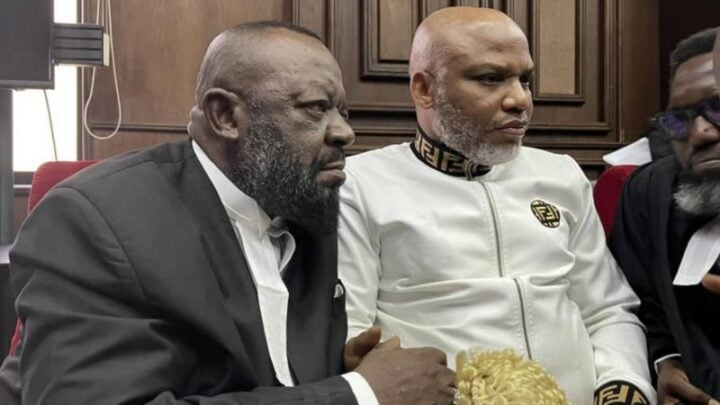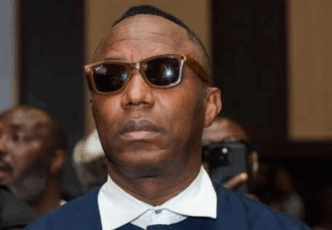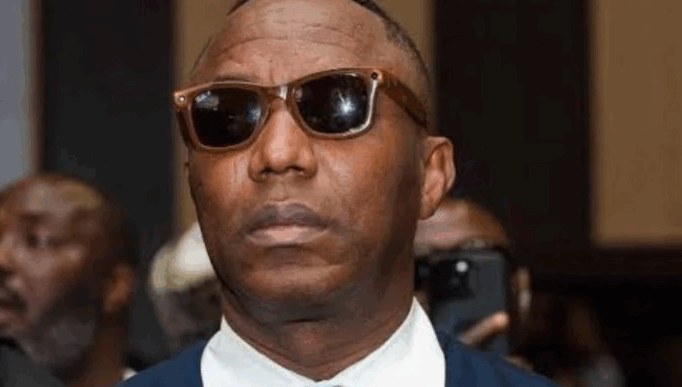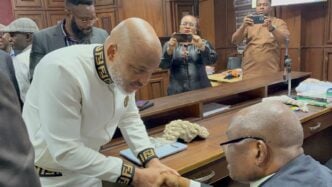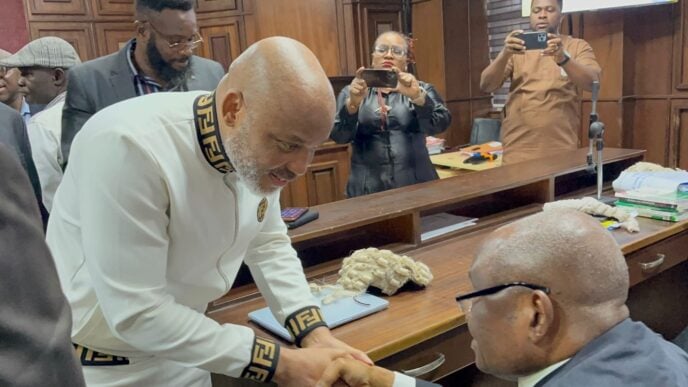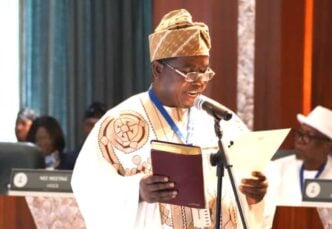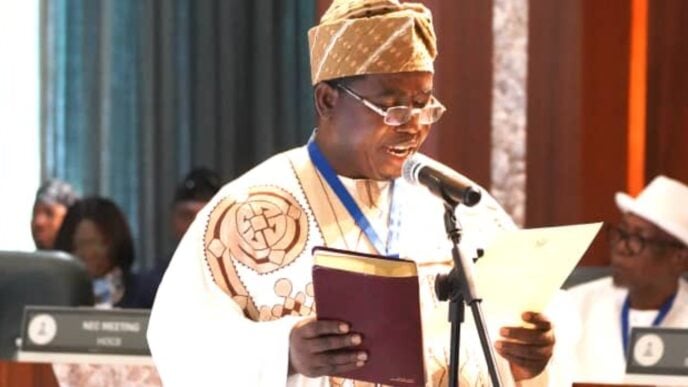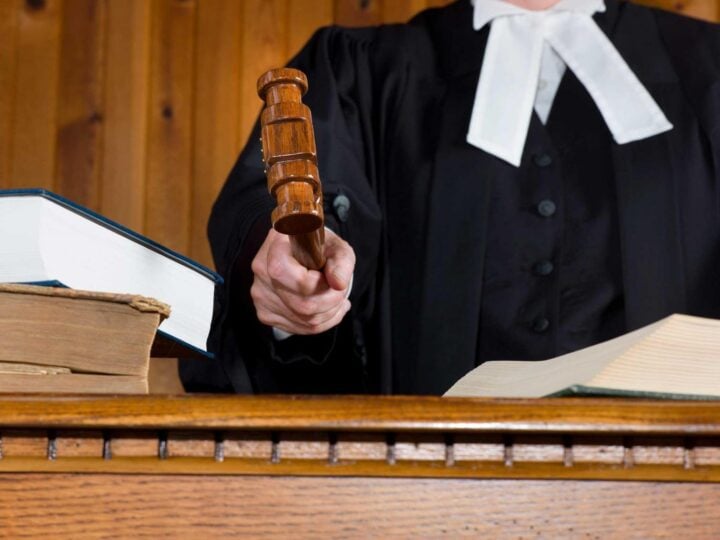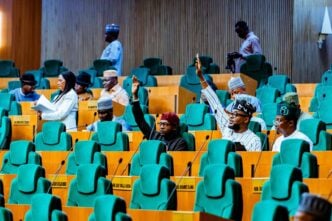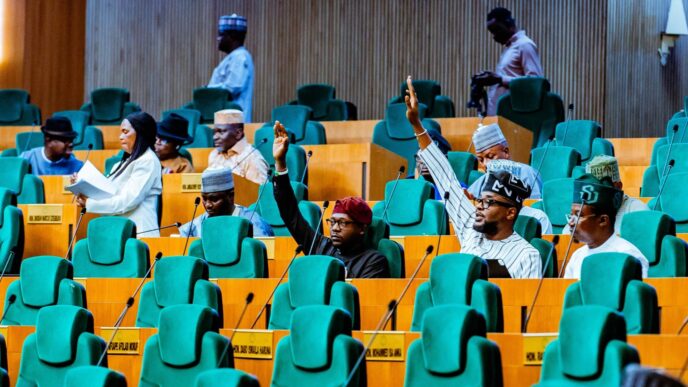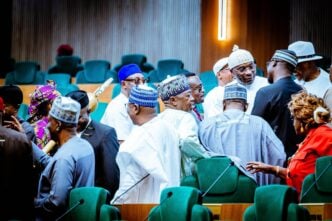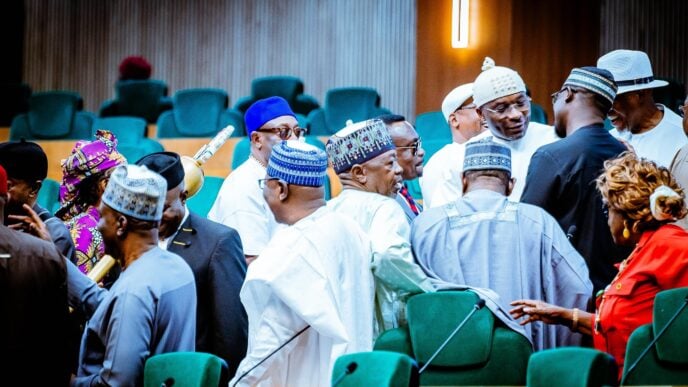L-R: Aloy Ejimakor and Nnamdi Kanu (in white) in court | File photo
The detention of Aloy Ejimakor, one of the lawyers representing Nnamdi Kanu, leader of the Indigenous People of Biafra (IPOB), has ignited questions, not only about the charges against him but also about the boundaries of legal advocacy in Nigeria.
Ejimakor, a counsel to Kanu in several ongoing matters, joined protesters on Monday in Abuja to demand the release of his client, who has been in the custody of the Department of State Services (DSS) since his re-arrest in 2021.
Kanu has since been charged alongside 12 others with various offences, including criminal conspiracy, disobedience of a lawful order, inciting disturbance, and disturbance of public peace, contrary to sections 152, 114, and 113 of the Penal Code.
While the police alleged that Ejimakor’s participation in the protest violated public order, some of his colleagues and supporters insist that he committed no offence and was merely exercising his constitutional right to peaceful assembly.
Advertisement
FREEDOM TO PEACEFUL PROTEST VS LEGAL ETHICS
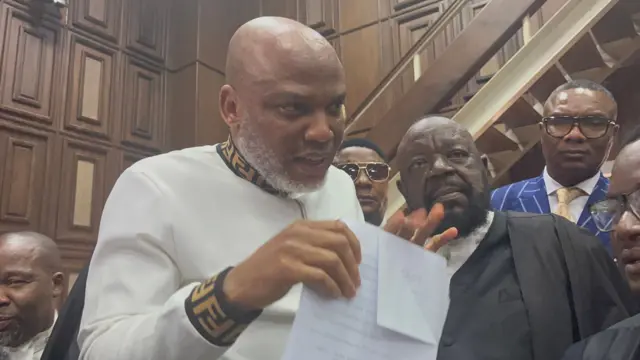
The freedom to peaceful protest is a fundamental human right recognised under international and domestic law. Sections 39 and 40 of the 1999 Constitution (as amended) guarantee the freedom of expression and freedom of association, allowing individuals to assemble and express dissent without violence.
However, the Rules of Professional Conduct (RPC) for legal practitioners impose limitations on what lawyers involved in active litigation can say or do in relation to their cases.
Rule 33 of the RPC states: “A lawyer or law firm engaged in or associated with the prosecution or defence of a criminal matter, or associated with a civil action shall not, while litigation is anticipated or pending in the matter, make or participate in making any extra-judicial statement that is calculated to prejudice or interfere with, or is reasonably capable of prejudicing or interfering with, the fair trial of the matter or the judgment or sentence.”
Advertisement
This provision underscores the caution lawyers are expected to exercise when handling cases still before the courts.
‘LAWYERS ARE EXPECTED TO ACT WITH CAUTION’
Commenting on the issue, Akin Balogun, a constitutional lawyer, said the protest could be interpreted as an attempt to influence judicial proceedings.
“When a matter is subjudice, persons, particularly legal practitioners, have been severally admonished about making statements or taking actions that have the capacity to dissuade the mind of the court,” he said.
“The protest in this circumstance is technically a call for the court to stop its handling of the case and to unconditionally release the person being tried. This is an indirect way of talking to the judge to stop the matter and release the accused person without determining the justice of the charge pending before it.”
Advertisement
Balogun added that Rule 33 applies not just to Ejimakor but to all lawyers.
“Where other persons might err based on their understanding of the law, legal practitioners are expected to act with caution,” Balogun said.
“This call for the release of a person undergoing trial definitely would have an effect on the mind of the court. A legal practitioner should not be found in such situations.
He noted that if the protest had taken place before Kanu’s trial began, “it would have been perfect”, but since the matter is before the court, “every other action should be stayed”.
Advertisement
“In 2024, during the interview session with the senate, the Chief Justice of Nigeria decried the habit of senior lawyers speaking on cases that are under judicial consideration on social media and television. These comments have their way of speaking to or dissuading the mind of the judge. This ought not to be.”
‘LAWYERS HAVE THE RIGHT TO PROTEST’
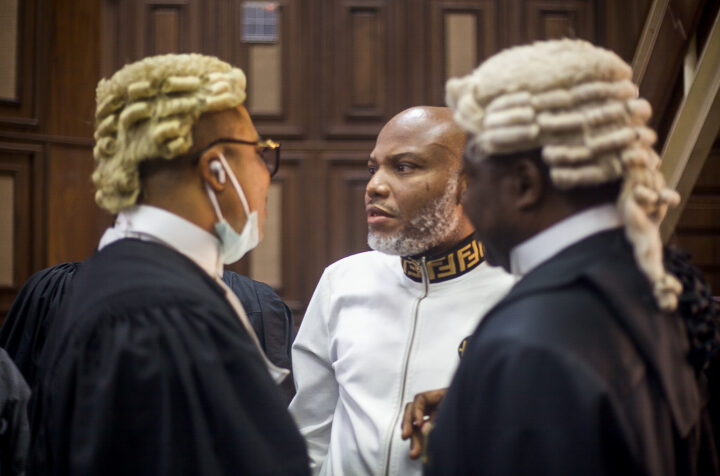
However, Maxwell Opara, another member of Kanu’s legal team, disagreed. He maintained that lawyers, like all citizens, have the constitutional right to protest against injustice and government disobedience to court orders.
Advertisement
Speaking on Arise Television on Tuesday, Opara said there is no law barring legal practitioners from participating in peaceful demonstrations, particularly where fundamental rights are being violated.
“Well, I have been, as a researcher, going through the laws to see where it is written that a lawyer cannot protest or participate in a protest against injustice or when the right of his client is being violated,” he said
Advertisement
“Assuming that there is a law, that law cannot be applied as a valid law because any law that contravenes the provisions of the constitution should be in abeyance.”
He added that the protest was not against the court but against “discriminatory actions by the executive against Kanu”.
Advertisement
Ejimakor is currently detained at the Kuje Correctional Centre, and the case has been adjourned until October 24 for arraignment.
Bayo Onanuga, special adviser on information and strategy to President Bola Tinubu, has called for disciplinary action against Ejimakor over alleged professional misconduct.
